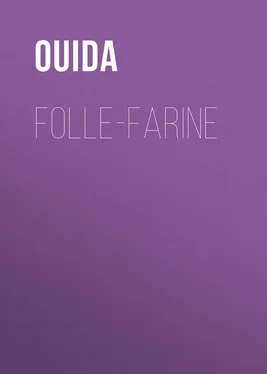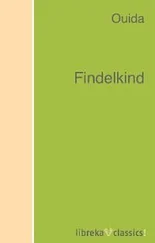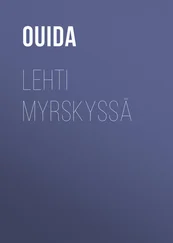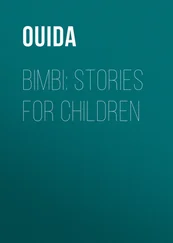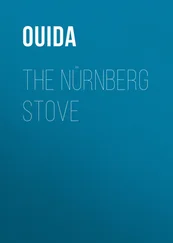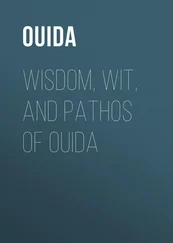Ouida - Folle-Farine
Здесь есть возможность читать онлайн «Ouida - Folle-Farine» — ознакомительный отрывок электронной книги совершенно бесплатно, а после прочтения отрывка купить полную версию. В некоторых случаях можно слушать аудио, скачать через торрент в формате fb2 и присутствует краткое содержание. Жанр: foreign_prose, literature_19, foreign_antique, на английском языке. Описание произведения, (предисловие) а так же отзывы посетителей доступны на портале библиотеки ЛибКат.
- Название:Folle-Farine
- Автор:
- Жанр:
- Год:неизвестен
- ISBN:нет данных
- Рейтинг книги:5 / 5. Голосов: 1
-
Избранное:Добавить в избранное
- Отзывы:
-
Ваша оценка:
- 100
- 1
- 2
- 3
- 4
- 5
Folle-Farine: краткое содержание, описание и аннотация
Предлагаем к чтению аннотацию, описание, краткое содержание или предисловие (зависит от того, что написал сам автор книги «Folle-Farine»). Если вы не нашли необходимую информацию о книге — напишите в комментариях, мы постараемся отыскать её.
Folle-Farine — читать онлайн ознакомительный отрывок
Ниже представлен текст книги, разбитый по страницам. Система сохранения места последней прочитанной страницы, позволяет с удобством читать онлайн бесплатно книгу «Folle-Farine», без необходимости каждый раз заново искать на чём Вы остановились. Поставьте закладку, и сможете в любой момент перейти на страницу, на которой закончили чтение.
Интервал:
Закладка:
Folle-Farine went slowly and sadly through the street, with her head dropped, and the large osier basket trailing behind her over the stones.
She was well used to be pelted with words hard as hailstones, and usually heeded them little, or gave them back with sullen defiance. But from this woman they had wounded her; from that bright bower of golden leaves and scarlet flowers she had faintly fancied some stray beam of light might wander even to her.
She was soon outside the gates of the town, and beyond the old walls, where the bramble and the lichen grew over the huge stones of ramparts and fortifications, useless and decayed from age.
The country roads and lanes, the silver streams and the wooden bridges, the lanes through which the market mules picked their careful way, the fields in which the white-capped peasant women, and the brindled oxen were at work, stretched all before her in a radiant air, sweet with the scent of ripening fruits from many orchards.
Here and there a wayside Calvary rose dark against the sun; here and there a chapel bell sounded from under some little peaked red roof. The cattle dozed beside meadow ditches that were choked with wild flowers; the dogs lay down beside their sheep and slept.
At the first cottage which she passed, the housewife sat out under a spreading chestnut-tree, weaving lace upon her knee.
Folle-Farine looked wistfully at the woman, who was young and pretty, and who darted her swift skilled hand in and out and around the bobbins, keeping time meanwhile with a mirthful burden that she sang.
The woman looked up and frowned as the girl passed by her.
A little way farther on there was a winehouse by the roadside, built of wood, vine-wreathed, and half hidden in the tall flowering briers of its garden.
Out of the lattice there was leaning a maiden with the silver cross on her bosom shining in the sun, and her meek blue eyes smiling down from under the tower of her high white cap. She was reaching a carnation to a student who stood below, with long fair locks and ruddy cheeks, and a beard yellow with the amber down of twenty years; and who kissed her white wrist as he caught the red flower.
Folle-Farine glanced at the pretty picture with a dull wonder and a nameless pain: what could it mean to be happy like that?
Half a league onward she passed another cottage shadowed by a sycamore-tree, and with the swallows whirling around its tall twisted stone chimneys, and a beurré pear covering with branch and bloom its old gray walls.
An aged woman sat sipping coffee in the sun, and a young one was sweeping the blue and white tiles with a broom, singing gayly as she swept.
"Art thou well placed, my mother?" she asked, pausing to look tenderly at the withered brown face, on which the shadows of the sycamore leaves were playing.
The old mother smiled, steeping her bread in the coffee-bowl.
"Surely, child; I can feel the sun and hear you sing."
She was happy though she was blind.
Folle-Farine stood a moment and looked at them across a hedge of honeysuckle.
"How odd it must feel to have any one to care to hear your voice like that!" she thought; and she went on her way through the poppies and the corn, half softened, half enraged.
Was she lower than they because she could find no one to care for her or take gladness in her life? Or was she greater than they because all human delights were to her as the dead letters of an unknown tongue?
Down a pathway fronting her that ran midway between the yellowing seas of wheat and a belt of lilac clover, over which a swarm of bees was murmuring, there came a countrywoman, crushing the herbage under her heavy shoes, ragged, picturesque, sunbrowned, swinging deep brass pails as she went to the herds on the hillside.
She carried a child twisted into the folds of her dress; a boy, half asleep, with his curly head against her breast. As she passed, the woman drew her kerchief over her bosom and over the brown rosy face of the child.
"She shall not look at thee, my darling," she muttered. "Her look withered Rémy's little limb."
And she covered the child jealously, and turned aside, so that she should tread a separate pathway through the clover, and did not brush the garments of the one she was compelled to pass.
Folle-Farine heard, and laughed aloud.
She knew of what the woman was thinking.
In the summer of the previous year, as she had passed the tanyard on the western bank of the river, the tanner's little son, rushing out in haste, had curled his mouth in insult at her, and clapping his hands, hissed in a child's love of cruelty the mocking words which he had heard his elders use of her. In answer, she had only turned her head and looked down at him with calm eyes of scorn.
But the child, running out fast, and startled by that regard, had stepped upon a shred of leather and had fallen heavily, breaking his left leg at the knee. The limb, unskillfully dealt with, and enfeebled by a tendency to disease, had never been restored, but hung limp, crooked, useless, withered from below the knee.
Through all the country side the little cripple, Rémy, creeping out into the sun upon his crutches, was pointed out in a passionate pity as the object of her sorcery, the victim of her vengeance. When she had heard what they said she had laughed as she laughed now, drawing together her straight brows and showing her glistening teeth.
All the momentary softness died in her as the peasant covered the boy's face and turned aside into the clover. She laughed aloud and swept on through the half-ripe corn with that swift, harmonious, majestic movement which was inborn in her, as it is inborn in the deer or the antelope, singing again as she went those strange wild airs, like the sigh of the wind, which were all the language that lingered in her memory from the land that had seen her birth.
To such aversion as this she was too well used for it to be a matter of even notice to her. She knew that she was marked and shunned by the community amidst which her lot was cast; and she accepted proscription without wonder and without resistance.
Folle-Farine: the Dust. What lower thing did earth hold?
In this old-world district, amidst the pastures and cornlands of Normandy, superstition had taken a hold which the passage of centuries and the advent of revolution had done very little to lessen.
Few of the people could read and fewer still could write. They knew nothing but what their priests and their politicians told them to believe. They went to their beds with the poultry, and rose as the cock crew: they went to mass, as their ducks to the osier and weed ponds; and to the conscription as their lambs to the slaughter. They understood that there was a world beyond them, but they remembered it only as the best market for their fruit, their fowls, their lace, their skins.
Their brains were as dim as were their oil-lit streets at night; though their lives were content and mirthful, and the most part pious. They went out into the summer meadows chanting aves, in seasons of drought to pray for rain on their parching orchards, in the same credulity with which they groped through the winter fog, bearing torches and chanting dirges to gain a blessing at seed-time on their bleak black fallows.
The beauty and the faith of the old Mediæval life were with them still; and with its beauty and its faith were its bigotry and its cruelty likewise. They led simple and contented lives; for the most part honest, and among themselves cheerful and kindly; preserving much grace of color, of costume, of idiosyncrasy, because apart from the hueless communism and characterless monotony of modern cities.
But they believed in sorcery and in devilry; they were brutal to their beasts, and could be as brutal to their foes; they were steeped in legend and tradition from their cradles; and all the darkest superstitions of dead ages still found home and treasury in their hearts and at their hearths.
Читать дальшеИнтервал:
Закладка:
Похожие книги на «Folle-Farine»
Представляем Вашему вниманию похожие книги на «Folle-Farine» списком для выбора. Мы отобрали схожую по названию и смыслу литературу в надежде предоставить читателям больше вариантов отыскать новые, интересные, ещё непрочитанные произведения.
Обсуждение, отзывы о книге «Folle-Farine» и просто собственные мнения читателей. Оставьте ваши комментарии, напишите, что Вы думаете о произведении, его смысле или главных героях. Укажите что конкретно понравилось, а что нет, и почему Вы так считаете.
